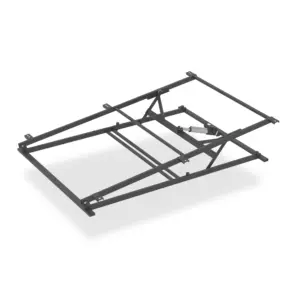One Simple Way to Keep a Sleep Journal and Improve Your Rest
Unlock Better Sleep with a Sleep Journal
Keeping a sleep journal is an effective method to enhance your rest and overall well-being. By tracking essential details about your sleep habits, you can gain powerful insights into factors that may be affecting your sleep quality. As a response to the rising rates of insomnia and poor sleep patterns in various age groups, maintaining a sleep journal can serve as a straightforward and transformative tool.
To start, document your bedtime, wake-up time, sleep interruptions, naps, perceived sleep quality, and various lifestyle factors such as alcohol, caffeine, tobacco use, medications, and exercise. By diligently recording this information, especially for a couple of weeks, you may uncover specific patterns that provide clarity regarding your sleep challenges. Recognizing these patterns is the first step in developing strategies alongside your doctor to enhance your sleep quality.
I’m Ben Trapskin, the founder of Yawnder, and as a sleep enthusiast who struggled with restless nights for years, I can attest to the benefits of keeping a sleep journal. Join me as we explore how to keep a sleep journal effectively and improve your restful nights.
What is a Sleep Journal?
A sleep journal—also referred to as a sleep diary or log—is a dedicated tool for tracking your sleep patterns and behaviors. Unlike a standard diary, a sleep journal focuses solely on your sleep. By maintaining a comprehensive record of when you sleep and the quality of that sleep, you’ll uncover insights that can lead to significant improvements.
Sleep Diary vs. Sleep Log
While both terms are often used interchangeably, a sleep diary tends to capture basic details about your sleep, whereas a sleep log may provide a more detailed account. Both formats are essential in helping identify trends and issues that might influence your sleep quality.
Key Elements to Record in Your Sleep Journal
Here are essential details to include in your sleep journal:
– Bedtime: Record the exact time you go to bed.
– Wake-Up Time: Note when you awaken each morning.
– Sleep Interruptions: Detail how often and for how long you wake during the night.
– Naps: Log if you took a nap, including duration and timing.
– Perceived Sleep Quality: Rate your nightly rest on a scale from 0 (poor) to 5 (excellent).
– Substance Use: Track alcohol, caffeine, and tobacco consumption leading up to bedtime.
– Medications: List any medications taken before sleep.
– Exercise: Document physical activity along with the time it was done.
Why Keeping a Sleep Journal Matters
Maintaining a sleep journal can highlight patterns that affect your rest. For instance, you may find that consuming caffeine in the afternoon impacts your ability to fall asleep. Alternatively, you might realize that consistent exercise improves your sleep quality.
Real-Life Example
Imagine Jane, who struggled with insomnia for years. By keeping a detailed sleep journal, she discovered that late-night TV watching negatively impacted her sleep. Transitioning to reading a book before bed dramatically improved her sleep quality.
Benefits of Keeping a Sleep Journal
Identify Patterns
One of the primary advantages of a sleep journal is recognizing habits that affect your sleep. It can reveal connections between your daily routines and nighttime rest.
Improve Sleep Quality
Making informed changes based on your findings can lead to better sleep quality. For instance, if alcohol disrupts your sleep, reducing or eliminating it might help you rest more soundly.
Assistance for Healthcare Providers
A sleep journal serves as a resource for healthcare providers, offering invaluable data for diagnosing and treating sleep issues.
Track Progress
Monitoring changes over time allows you to see how adjustments to your routine positively influence your sleep quality.
Dr. Chester Wu, a sleep medicine specialist, emphasizes that “good sleep hygiene acts as a roadmap to optimal conditions for restful nights.” Keeping a sleep journal is vital in facilitating this journey.
How to Set Up Your Sleep Journal
Creating your sleep journal is simple and can be accomplished using a notebook or a digital app. The key is consistency. Keep your journal near your bed or use sleep-tracking apps for convenient entries. Here’s what you should include:
– Nightly bedtime and wake-up times
– Instances of sleep interruption
– Naps taken, including timing and duration
– Substance intake
– Physical activity levels
Daily Entries
Consistency is critical for effective journaling. Aim to fill out your sleep journal daily, ideally within an hour of waking to ensure accurate and thorough entries.
Example of a Daily Entry:
| Time | Activity |
|————–|————————————–|
| 10:30 PM | Bedtime |
| 11:00 PM | Fell asleep |
| 2:00 AM | Woke up (bathroom break) |
| 2:05 AM | Fell back asleep |
| 7:00 AM | Wake-up time |
| 3:00 PM | 20-minute nap |
| 8:00 AM | 30-minute run |
| 6:00 PM | Dinner (pasta and salad) |
| 8:00 PM | One glass of wine |
| 5:00 PM | One coffee |
| | Perceived sleep quality: 4 |
Weekly Reviews
At the week’s end, review your entries to spot notable trends and factors that consistently affect your sleep quality. Ask yourself:
– Am I prioritizing enough time for restful sleep?
– Do I maintain a consistent sleep schedule?
– How do my daytime activities impact my sleep?
– Do I wake feeling refreshed?
This reflection can inspire necessary adjustments to your lifestyle for better sleep.
Conclusion
Keeping a sleep journal is a powerful tool that can revolutionize your sleep quality and overall health. By systematically tracking your habits, you can identify behaviors impacting your rest and make informed decisions toward improvement.
At Yawnder, we provide a wealth of resources on sleep hygiene and quality enhancement. If you’re ready to make a significant change, consider exploring our Labor Day Mattress Sales for quality mattresses designed to elevate your sleep environment.
Your journey to better sleep begins with that first entry in your sleep journal. Remember to stay committed, review regularly, and make incremental changes. With patience, your efforts will lead to transformative improvements in your sleep and health.



















